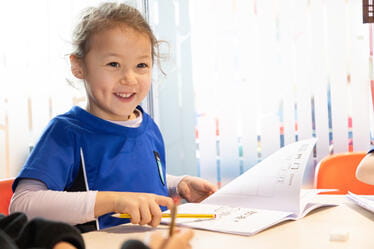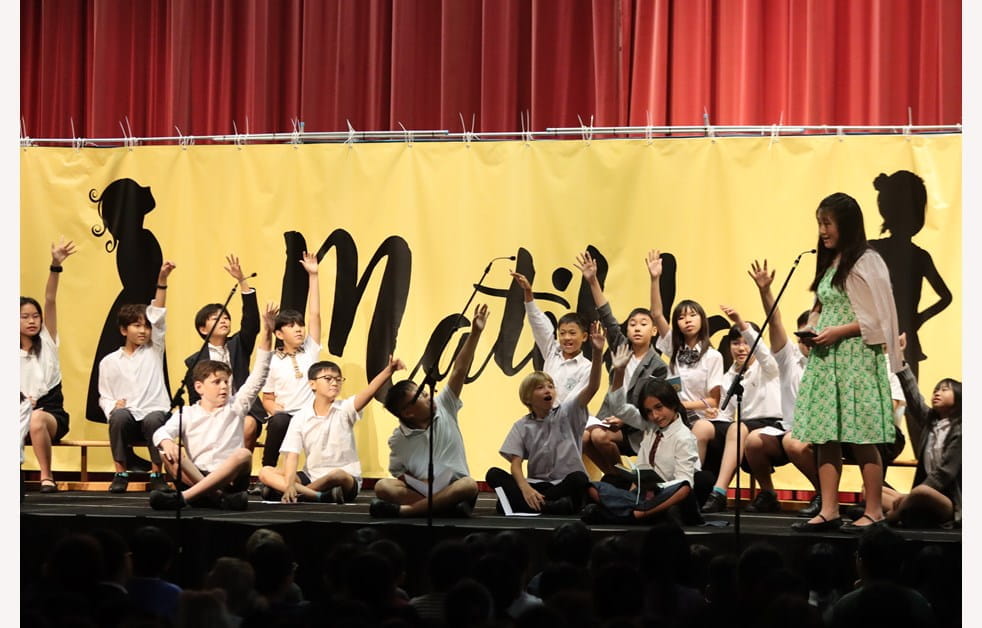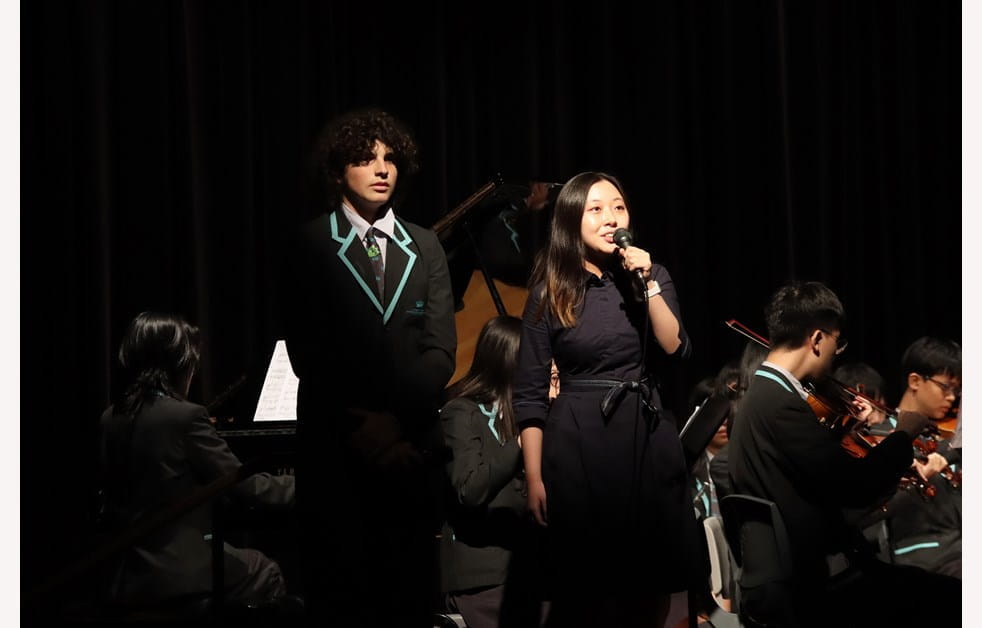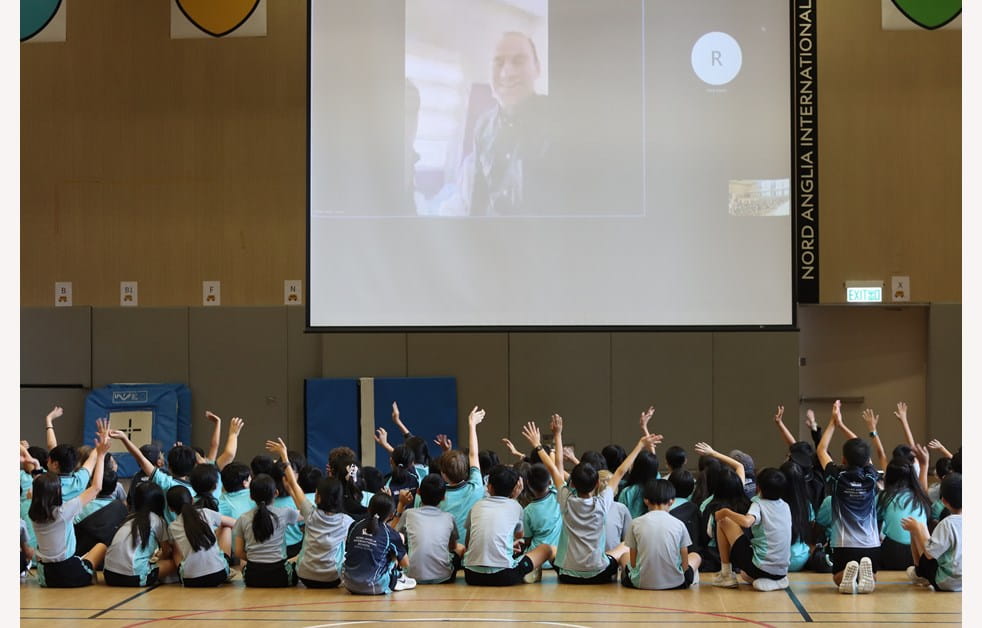Personalised learning and world-leading collaborations are key to a transformational education A greater focus on personalised, student-led learning and further integration with world-class experiences with Juilliard, MIT and UNICEF will help equip the students of today, with the skills for tomorrow.
Andy Puttock, NAE’s Education Director, says the group will continue to grow a “well-defined education vision” by applying a greater focus on a personalised, student-led learning approach and further integrate it with world-class experiences students are getting inside and outside the classroom though its collaborations with Juilliard, MIT and UNICEF.
Speaking at the SLT Conference in Les Martinets, Switzerland on Saturday, Puttock said the vision is a continuation of the work Nord Anglia Education (NAE) is doing to think and move beyond traditional education practices by providing unique, transformational learning experiences for students.
The vision he outlined includes a blueprint to develop the skills, attitudes and attributes students need in the 21st century and beyond that will help transform the lives of young people. The unique collaborations the group has with world-leading organisations like The Juilliard School, Massachusetts Institute of Technology (MIT) and UNICEF are all at the core of this strategy.
“As educators, we must deliver today an education that will prepare our students for what tomorrow will bring,” Mr Puttock said.
“Experiential learning, real-life and authentic experiences, extend classroom learning for every student. They are a core part of our personalised learning process. Everything we do must bridge the gap between the type of learning we received in the past, where students came to be school to be simply filled with knowledge, and their future needs.”
Mr Puttock described the student of the future as someone resilient, flexible, confident and an autonomous life-long learner. They will be technologically competent and analytical, collaborative and socially conscious and active. The student of the future will be curious and will seek to both identify and solve problems.
While a number of top international schools offer exciting opportunities to develop and apply skills like cultural awareness and competency, empathy, collaboration and the ability to communicate effectively and confidently, Mr Puttock said NAE schools were uniquely placed to offer environments for exceptional learning by working with leading-edge educators MIT in STEAM subjects, Juilliard for the performing arts and UNICEF to provide a framework for learning global citizenship.
“We have outstanding collaborations with world leaders. We need to be proud of who we are, and we do. Our global scale allows us to provide outstanding opportunities,” he said.
Looking forward, Mr Puttock said there would be a change in the role of schools and the way they function in the future. He expects learning will shift into becoming a student-led, collaborative process. He said this will be the best and most conducive way children can imbibe the skills, attributes and values to flourish in a world where he (and other leading educators) believe will be directed by artificial intelligence and other technologies, and where graduates will experience multiple career changes in their lifetimes.
“Schools must realise they cannot continue to operate as transmitters of knowledge. Learning at its best is a social, collaborative and shared activity where you learn from each other. Students will not be receptors to be filled with knowledge – they will become agents of their own learning.”
Schools of the future will place greater emphasis on areas of learning such as the performing arts, interdisciplinary learning, global citizenship, greater engagement with technologies that focus on values over knowledge, sport or physical activity, well-being and entrepreneurship. For these shifts to occur, educators must change gears into becoming role models for life-long learning.
“NAE’s unique collaborations with world leaders in their field in these areas will enable these aspects to come to life in an unparalleled fashion for their students,” Mr Puttock said.
Apart from a greater focus on its collaborations, NAE will also continue to build up its Global Campus, an online platform that brings its 50,000 students together virtually through online initiatives like its comic book, photography and creative writing competitions and actually through the Global Games, NAE’s regional sports events, and its global expedition programmes in Switzerland and Tanzania. Greater emphasis will also be placed on further developing Nord Anglia University (NAU), an online platform for its teaching staff to share global best practice and offline through more opportunities for professional development.
“Every parent wants the best for their child — so do we. There is always more to be done as the future is always reinventing itself, but we won’t rest as we continue to prepare them for whatever it may bring,” Mr Puttock said.






